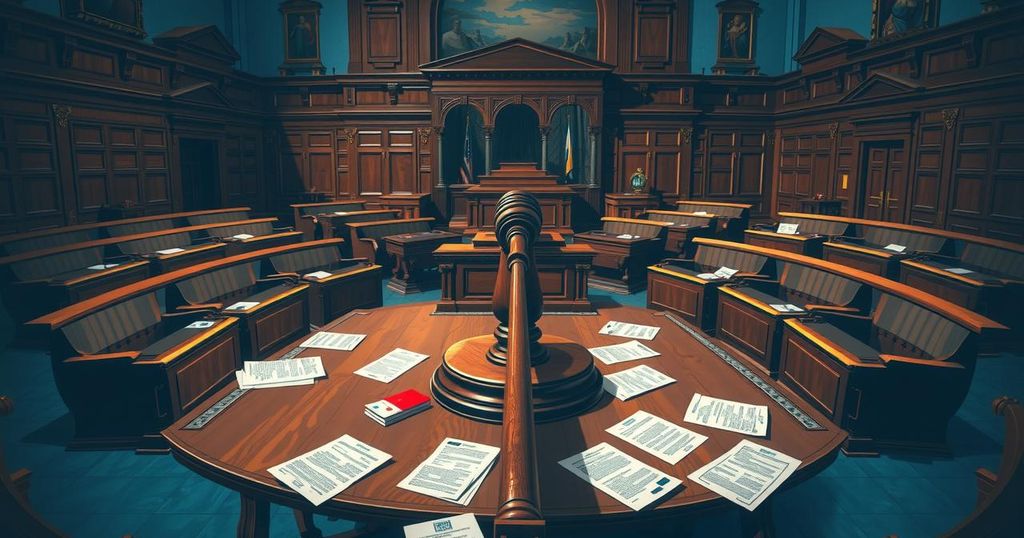Nigerian lawmakers reportedly accepted bribes of up to $25,000 to support President Bola Tinubu’s proclamation aimed at dissolving democratic institutions in Rivers State. As attendance in parliament fell short of quorum, discussions on cash incentives ensued among the president’s allies to secure necessary votes. The situation sparked widespread criticism and raised concerns over constitutional legality.
The Nigerian National Assembly experienced a surge of controversy as lawmakers allegedly accepted bribes of up to $25,000 in an attempt to support President Bola Tinubu’s emergency proclamation in Rivers State. This initiative aims to dissolve democratic institutions in the state, including the removal of elected officials. Reports indicated that eleven lawmakers, which included both senators and representatives, confirmed receiving these bribe offers to facilitate the president’s actions.
Amidst a climate of dissent, attendance in the parliament fell significantly short of the required quorum, with only 113 members present out of the necessary 120. This prompted discussions among the president’s allies to provide cash incentives to ensure legislative support. Interviews reportedly revealed that seven lawmakers accepted $25,000 bribes while others received lesser amounts, indicating a well-coordinated effort to gather votes in favor of the emergency order.
The executive session took place following Tinubu’s announcement citing rising tensions between Governor Simi Fubara and lawmakers loyal to Nyesom Wike. This proclamation, however, met with widespread criticism, with many legal experts and citizens denouncing it as unconstitutional. The Nigerian Constitution stipulates stringent requirements for ratifying such actions, necessitating a two-thirds majority in both chambers.
Despite the urgency presented by the administration to activate the emergency rule, the National Assembly’s membership inadequacy on both Wednesday and Thursday indicated significant resistance. The president’s aides struggled to secure necessary votes, highlighting a potential erosion of support among lawmakers. Tinubu’s appointed administrator, a retired naval chief, further compounded tensions in the region, prompting fears of further national instability.
As the deadline for parliamentary approval looms, the situation underscores a significant constitutional crisis and the political uncertainty faced by both the ruling and opposition parties over the unfolding events in Rivers State.
The situation surrounding President Bola Tinubu’s emergency proclamation in Rivers State raises critical questions about the integrity of Nigeria’s political system. Allegations of bribery among lawmakers underscore a troubling trend of corruption, while the shortcomings in legislative attendance illustrate substantial dissent. The unfolding events not only call into question the legality of the president’s actions but also highlight potential threats to democratic governance in Nigeria.
Original Source: gazettengr.com






